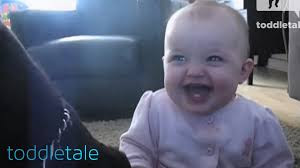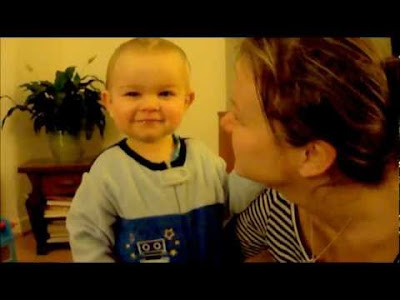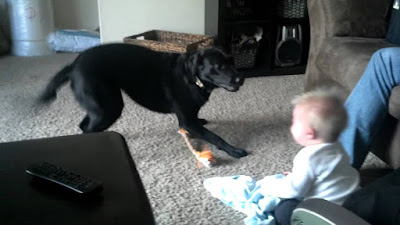Best Babies Laughing Video 2016
While funny babies start laughing early, it's a long time before
they'll appreciate a good joke. Meanwhile, what's likely to tickle their funny
bones? "Young babies tend to find auditory and tactile things funny,"
says Dr. Gahagan. "Funny lip-popping sounds, a whispery noise, a squeaky
voice, gentle blowing on their hair, or kisses on their tummy."
One of the first times
Selena Pizzo, of Glastonbury, Connecticut, remembers her son, Jonathan,
cracking up was when big sister, Ashley, snapped up the sun shade on her car
window. "It rolled up quickly, making a clicking sound, and Jonathan, who
was about 5 months, burst out laughing. One day, when he was cranky and crying,
I asked Ashley to do the shade trick again, and it worked -- he immediately
started laughing!" Of course, the things babies and toddlers find funny
change as they grow, often reflecting the developmental tasks they're
struggling with, explains Lawrence Kutner, PhD, co-director of the Harvard
Medical School Center for Mental Health and Media.
Between 8 and 10 months,
most babies delight in playing peek-a-boo, precisely because they're grappling
with "object permanence," or the idea that things still exists, even
when out of sight. "When you hide a toy or your face behind a cloth, it
creates a certain tension for the baby, who is learning about object
permanence," notes Kutner. "With infant, the game doesn't register.
And for the older child who's already mastered object permanence, the game
becomes boring."




Comments
Post a Comment